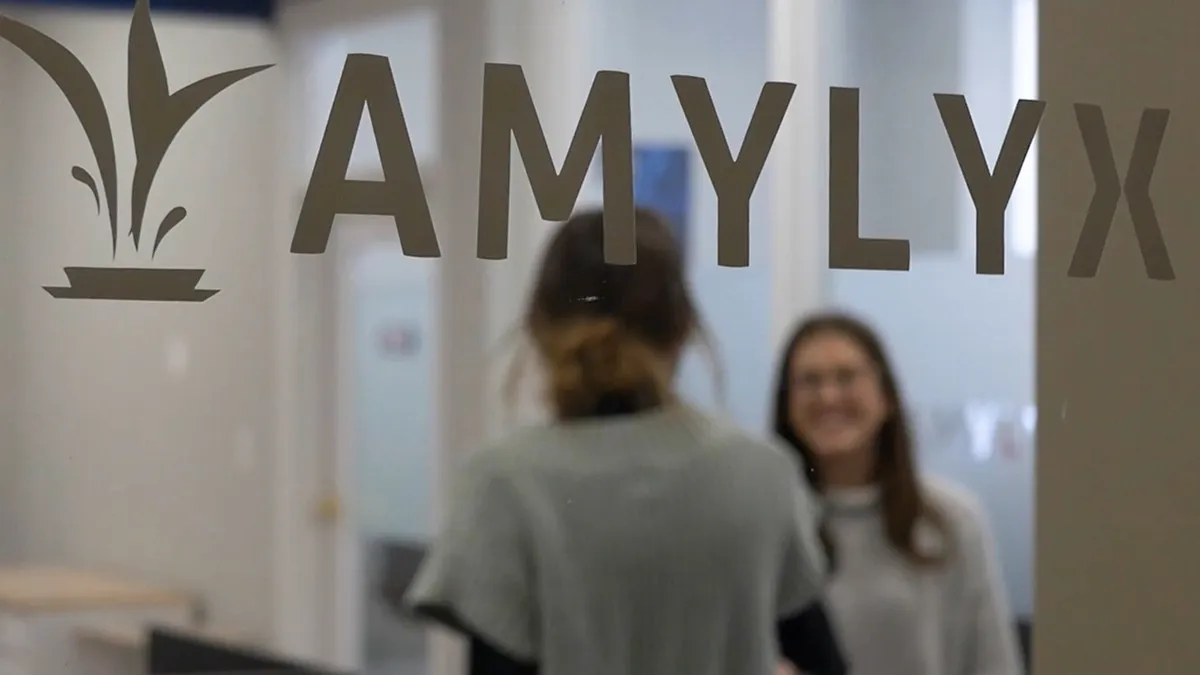Roughly 6 million dogs are diagnosed with cancer every year in the U.S. Yet, there aren’t many treatment options. Most chemotherapies in veterinary medicine are human drugs that have been repurposed for dogs and cats with mixed results.
“They're toxic and they're expensive,” said Adriann Sax, CEO, president and co-founder of the clinical stage animal health biopharma Vetigenics. “Some pet parents would be willing to … invest $10,000 in chemo. The problem is, their dogs don't live that long. Maybe a year, maybe less than that … and the dog's quality of life is not that great.”
Pet chemotherapy is also hard to access. Since it’s toxic and requires special handling, veterinary oncologists typically administer it, and there are only 350 specialists nationwide.
These and other hurdles have prevented most pharma companies from making the leap into canine cancer treatments, despite huge gaps in the market.
Vetigenics is trying to change that by developing targeted antibody therapies for pets that are more affordable and can be administered by veterinary generalists.
“[We base] the work we're doing on what has been successful in humans,” Sax said. “Once we find targets that have shown success in humans, we look at their relevance to treat dogs and cats for similar diseases.”
The company was originally founded to develop canine research antibodies for comparative oncology through a National Cancer Institute small business innovation research award. Now, it’s evolved into developing viable treatments for pets, too.
“We want our medicines to be cost effective for pet parents,” Sax said. “Our hope is that maybe immunotherapy can be given by a veterinary generalist as almost palliative care to extend the quality of life for dogs.”
Tapping the antibody market
Antibody-based therapies have been hugely successful, both in humans and animals. Most notable is Merck & Co.’s immunotherapy Keytruda, the world’s best-selling drug, which raked in $25 billion in 2023.
However in animal cancers, the market has been slower.
“Cancer is not a big opportunity in animal health. Pain and itch? Huge,” Sax said.
For instance, Cytopoint, a monoclonal antibody therapy developed by the animal health company Zoetis for atopic dermatitis in dogs, is redefining what’s considered a “blockbuster.” Although the term in pharma is defined by a drug that passes the $1 billion sales mark, in animal health, it's reserved for treatments that pull in over $100 million each year.
“That drug’s going to do over a billion dollars, I think, this year,” said Sax. “That is unheard of in animal health.”
While human chemotherapies can be repurposed for dogs and cats, that’s not true for antibody therapy.
“Immunotherapies are species specific. You can't give an antibody like CTLA-4 and PD-1 from a human to a dog, because the dog would reject it,” Sax said.
Instead, Vetigenics’ platform technology allows it to generate species-specific antibody therapeutics for cancer and other chronic diseases, such as autoimmune disease. Its two lead products are an anti CTLA-4mAb, which is being studied in canine oral melanoma, and an anti PD-1 mAb, for canine urothelial carcinoma. Both are in pilot clinical trials. The company is targeting regulatory approval for both by 2027.
“More and more human companies are looking at the value of pet dogs in doing preclinical research."

Adriann Sax
CEO, president and co-founder, Vetigenics
Vetigenics is also developing antibody treatments for lymphoma in dogs, squamous cell carcinoma in cats and obesity in dogs.
In addition to its own pipeline, Vetigenics makes antibodies for strategic partners like Merck Animal Health, which recently launched a canine monoclonal antibody, gilvetmab, to treat dogs with mast cell tumors and melanoma.
Barriers still exist
Although Merck’s gilvetmab is tapping the monoclonal antibody cancer market for dogs, it’s still a relatively expensive treatment and is in limited supply, according to Vetigenics. Instead, Vetigenics is developing alternate delivery methods to make these cancer treatments more cost effective.
Zoetis has taken a similar approach with drugs like Cytopoint and Solensia, a once-monthly, injectable monoclonal antibody therapy for feline osteoarthritis.
“They are used by the veterinary generalists. They're very comfortable with these drugs,” Sax said. “So building on that success that Zoetis has already demonstrated, we'd like to do the same thing with the treatment of cancer, and bring it back to the veterinary generalist.”
There are several other reasons that pharma companies don’t often dip their toes into animal oncology.
“There are a lot of human companies that don't want to move into animal health because they feel that it would negatively impact their ability to price, even though it's a different product,” Sax said. Indeed, the huge cost difference between the “same” drugs for humans and animals has already generated pushback and could pressure pharma companies to lower treatment prices.
Another barrier is the regulatory path in animal health. While some animal drugs are approved by the FDA, biologics that work through the immune system, including Vetigenics’ two lead products, are regulated by the USDA.
“It's expertise they don't have,” Sax said of human health companies. “The process is different, and they don't deal with USDA at all.”
Still, the field of comparative oncology is growing, and Sax is hopeful it will lead to more and better treatments for humans and animals.
“More and more human companies are looking at the value of pet dogs in doing preclinical research,” Sax said.


















